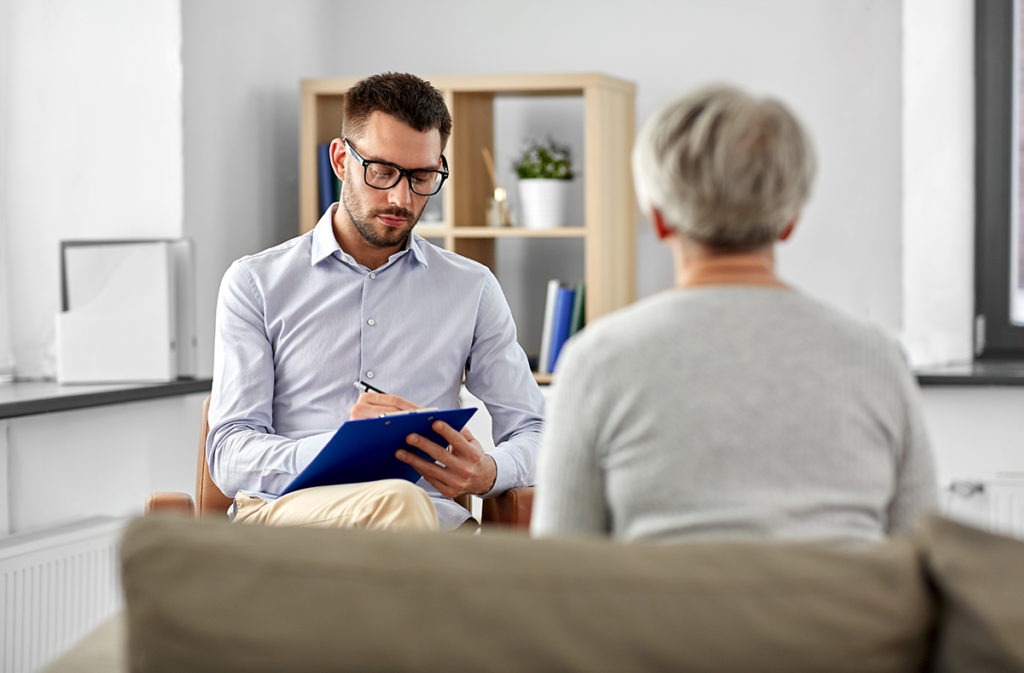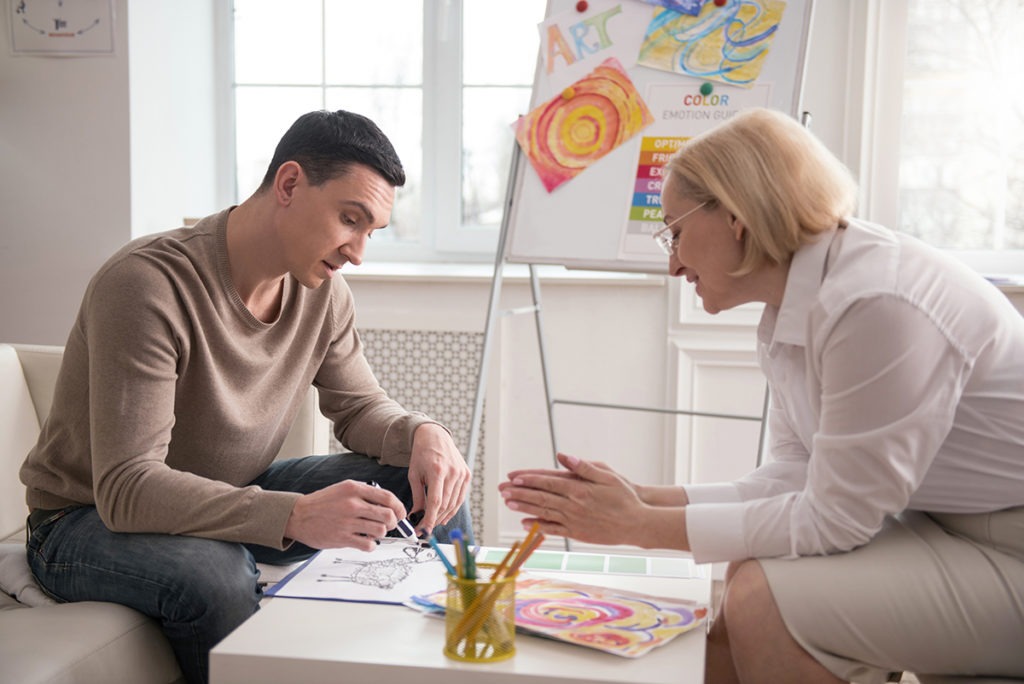Susan and David Hanna have built their lives around helping people overcome addiction. Susan, a registered nurse for nearly 20 years as well as a certified addictions registered nurse, was drawn to the field by the addictions of close friends and family. “I’ve seen firsthand that people can get better and lead productive lives,” Susan says. “I’ve also experienced what happens when they don’t. It’s my personal mission to provide people with the necessary tools to get better if they choose to. And if they aren’t ready now, I’m available if and when they make that choice.” David has similarly been affected by addiction. Determined to better understand his own addiction and recovery and to serve the clients he was working with as a part-time counselor during grad school, he became a licensed chemical dependency counselor. He has worked in the field ever since. Susan and David met at The Right Step, he a residential counselor and she a detox nurse. Since the beginning of his career in the field, David has gone from recovery advocate to program coordinator to clinical supervisor. Since 2010, he and Susan have operated intensive outpatient programs (IOPs) as an affiliate of The Right Step in Houston, Texas. “Choosing an affiliate was a no-brainer,” says David. “I’ve worked with other treatment centers but I believe The Right Step simply has the strongest program.”
Going the Extra Mile
What started as one outpatient center three years ago has quickly grown to four, with additional facilities in the planning stages. The secret to their success is simple: exceptional care. “I think we have the best clinical team in the city,” says David. “Part of our mission is to ensure that our counselors have the support they need to deliver superior care. We always go the extra mile for our employees, which allows them to go out of their way for our clients.” Their approach, which is grounded in motivational interviewing, is to meet each client where they’re at. “Since our clients have diverse backgrounds, belief systems, experiences and ways of thinking, we don’t apply the same formula for everyone,” David says. “We adapt treatment to each person’s needs.” Susan and David provide care that is effective and from the heart. Firm but fair, Susan will do anything she can to help clients who are willing to commit to the process. Kind and caring, David goes out of his way for clients and their families, even devoting personal time to helping address difficult situations before, during and after treatment. David and Susan also work with the legal system to get individuals treatment in lieu of prison.
Making Recovery a Reality
Intensive outpatient care makes recovery a reality for a wide range of people. Those who can’t (or don’t need to) take time off for a stay in residential treatment are able to receive treatment while working, attending school or honoring family obligations. While some clients enter an intensive outpatient program following residential treatment, many come directly to IOP. If a client requires detox or can’t maintain their sobriety for a few days in IOP, they receive referrals to other levels of care and are welcome back when they’re more stable in their sobriety. “Given proper support, clients can be highly successful in outpatient treatment,” Susan says. “Because they are not sheltered from everyday stresses, they learn how to be sober and use the skills they’re learning in a real-world environment.” The intensive outpatient programs overseen by David and Susan meet four times per week for six weeks and include day programs, evening programs and an adolescent program. Treatment includes an assessment, four group counseling sessions per week, including a group for clients and family members on Wednesdays. The staff also helps clients choose local 12-Step meetings and conducts random drug testing twice a week to provide structure and accountability. Family participation, which David describes as “the engine that makes everything else turn,” is strongly encouraged. There are groups on Tuesdays just for families, which are led by family members of former clients. Similar to Al-Anon, the group offers support and guidance for family members while their loved one is in treatment. David, who has a particular passion for rebuilding family bonds, has also worked with families before a client comes in for treatment to help them develop the skills to intervene. After each six-week program, clients are invited to attend aftercare meetings every Tuesday night for as long as they wish. Susan and David also offer supportive outpatient treatment, which is similar to IOP but the groups meet twice a week instead of four times.
Meeting the Unique Needs of Adolescents
The adolescent intensive outpatient program is designed to meet the specific needs of young people ages 13 to 17. Whereas adults benefit from learning about the disease of addiction through formal chemical dependency education, adolescents thrive in a less formal setting with open dialogue. Activities are a hands-on way to learn about addiction and recovery while keeping teens moving and engaged. In this environment, teens often report, “This is the only place I feel like people listen to me,” says Susan, who has a passion for working with adolescents and young adults. Another difference between addiction treatment for adolescents and adults is the integration of self-help support groups. While adults typically attend AA/NA meetings, adolescents fare best in alternative peer group programs where they can form close bonds with others in recovery and learn to have fun without using drugs or alcohol. Although adolescents and adults are in separate programs during the day, there are process groups for all ages and their families so that adults have the opportunity to see themselves in the teens and the teens see the older clients as examples of where their lives could go. Teens also have weekly aftercare meetings where alumni come back to speak with current clients.
A Safe Passage Out of Addiction
For anyone who is suffering from addiction, who wonders if they have a problem, or who needs help reaching out to someone they love, David and Susan’s intensive outpatient centers are a safe place to go. They don’t try to force people into treatment, but they can help determine what the individual’s needs are and find a way to get them help if needed. Many clients are ambivalent about treatment. They don’t know what to do, so they wait. But waiting often leads to consequences they wish they didn’t have, David says. “The first step in the right direction is talking to someone about what’s happening,” he advises. “Whether it’s with us or someone else, it’s important to get an assessment from an experienced addiction treatment provider.”






